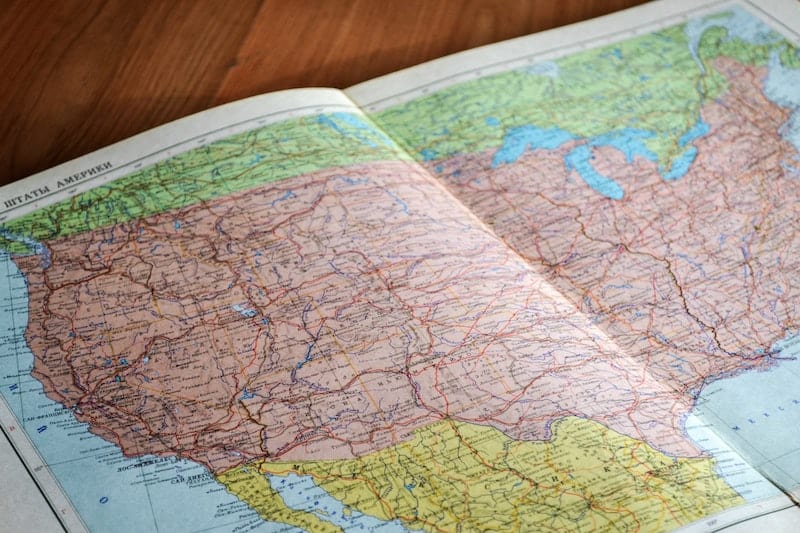Each year, millions of Americans make the leap and move abroad to a new country. Among all the excitement, packing and job searching, financial planning often takes a back seat to other priorities.
But an international move can actually have big impacts on not just your daily spending, but also your long-term financial goals. From learning exchange rates to finding a new bank, we’re exploring key steps you need to take before you leave lady liberty.
Watch Our Latest Webinar: 7 Tips to Prepare for an International Move
5 Financial Steps to Take Before Moving Out of the U.S.
Thinking about living that expat life? Here are five financial steps you should take before making the big move.
1. Find a bank
One of the first things you should do before buying that plane ticket is to figure out how your cash will flow, which will likely involve finding a bank that works for you. Even if you plan on keeping your stateside bank, it’s important to have a local place where you can handle taxes and exchange rates in person. Of course, if you’re moving permanently, it’s probably best to set up a bank account in your new place of residence.
Some countries require you to establish residencies before opening a new bank account. In other cases, your passport is the golden ticket. A global financial advisor can help you find out the specific laws and regulations you need to be aware of – which brings us to financial step number two.
2. Find an advisor
If you don’t have an advisor, consider working with one to at least help you navigate the transition between countries.
People moving across countries often wonder if they will need two financial advisors – one in their old country and one in the new. The rise of cross-border planning specialists, also known as Global Financial Planners, can often solve this issue.
A GFP® isn’t just an advisor who loves to travel (although I’m guilty of that, too). It’s a designation given to advisors who have received specialized training through the Global Financial Planning Institute (GFPI) to help people navigate financial situations no matter where in the world they go.
Ideally, you can find an advisor that specializes in cross-border planning between the U.S. and the country to which you are moving.
3. Build a budget
Building a budget in a new country comes with a new set of hurdles. In addition to varying costs of living, you also have to consider the exchange rate of your new country.
For example, a dollar in the U.S. doesn’t translate into a dollar in Australia. Rather, an Australian dollar is worth about $0.65 U.S. dollars as of October 2022. Those numbers can be confusing – especially when you add in different currency types.
A financial advisor can help you build a budget with these exchange rates in mind and keep you on track to meet your budget goals.
4. Determine how you’ll handle investments
If you choose to invest while abroad, be aware that you could trigger Passive Foreign Investment Company (PFIC) rules. This occurs when you hold certain investments abroad as a U.S. tax resident.
If you plan to leave your investments in the U.S., think about who will manage those accounts – it may be more difficult to make changes from across the world. It may also be worth your while to talk about establishing an estate plan for those assets in the event that you pass away while abroad.
5. Know your taxes
If you’re a big fan of filing complex tax returns, then you’ll be ecstatic to learn that living in a different country often adds another layer of complexity to tax planning.
For the purposes of taxation, the IRS has two classifications of people:
1. United States Persons – This is defined as a US citizen, US green card holder or anyone currently in the US who has been here for more than 183 days.
2. Foreign Persons – This is a nonresident person who is not a citizen, does not hold a green card and has been here fewer than 183 days.
If you are classified as a US Person, you need to file US taxes, even after you move abroad.
Dual citizenship can also complicate matters – being a full citizen in two countries could mean you are under the tax laws of two countries. While most countries tax based on where you currently reside, the U.S. is one of only two countries in the world (Eritrea being the other) that taxes its citizens globally, no matter where you live. US citizens and permanent residents are required to pay taxes on their income, no matter where they live and work.
Countries also differ in what whether they tax residents only on domestically sourced income, or if they tax global income. Finding out if your new home country has a tax treaty with the US could help you avoid double taxation.
Make sure to review your accounts with a professional before filing taxes as any oversights could be very costly. Failure to file penalties can easily exceed $10,000.
There’s a whole world to explore outside of the United States, but your financial plans need to take into account the various laws and regulations of both your new and home country. With these five steps in place, you’re on track to make your move with confidence.
Learn More with Clarity
Our advisors can help you create a plan for the future – wherever your adventure takes you. Click here to schedule a consultation with Clarity Wealth today.



